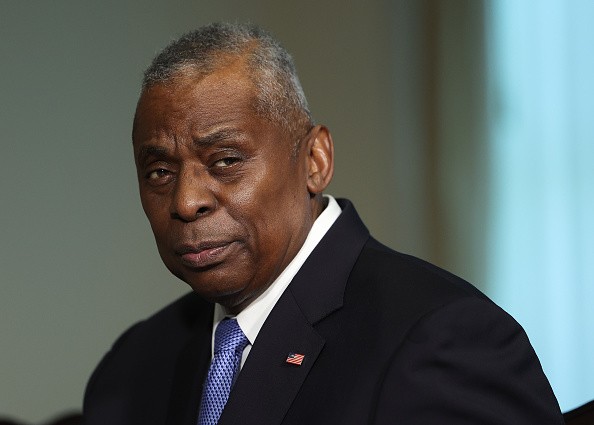US Defense Secretary Lloyd Austin, who was diagnosed with prostate cancer in December, was hospitalized again on Sunday after discovering bladder issue symptoms.
The Pentagon reported that Austin was taken to Walter Reed National Military Medical Center by his security detail around 2:20 pm.

According to Pentagon Press Secretary Major General Pat Ryder, Austin was hospitalized as of Sunday night. He transferred his duties to Deputy Secretary of Defense Kathleen Hicks on Sunday at around 5 pm, even though he was set to retain the "functions and duties of his office."
Austin is scheduled to travel to Brussels on Wednesday for a meeting of the Ukraine Defense Contact Group. However, it was unclear if his hospitalization would affect those travel arrangements.
The Pentagon informed Hicks, joint chiefs of staff, the White House, and Congress about Austin's hospitalization and said that Hicks is "prepared to assume the functions and duties of the secretary of defense if required."
"At this time, the secretary is retaining the duties and functions of his office," the statement said, adding that Austin had "traveled to the hospital with the classified and unclassified communications systems necessary to perform his duties."
Sunday's notification about Austin's hospitalization is a complete contrast to the hospitalization that the defense secretary experienced late last year when he was admitted for complications following prostate cancer surgery. The White House seemed to be unaware of Austin's earlier hospitalization for three days.
Lloyd Austin Diagnosed With Prostate Cancer
Austin underwent surgery at Reed Hospital on December 22, 2023. He was released the next day but returned on January 1.
Biden's national security adviser, Jake Sullivan, and the president were notified of Austin's diagnosis and hospitalization on January 4.
The Pentagon did not publicly release any information about Austin's hospitalization and absence from work until January 5.
This led to political backlash, which included the inspector general of the defense department opening an investigation. The Pentagon later announced that Austin's chief of staff was sick with the flu, exacerbating the delay in disclosing the information about the secretary's medical condition.
The National Security Council spokesperson, John Kirby, said Austin's involvement in national security affairs "was no different than it would be on any other given day, except that he was briefing the president on options and engaged in the discussions from the hospital."
However, the revelation of the connections in a crucial chain of command during a moment of rising global tensions and US military actions against Iran-backed militias in Iraq, Syria, and Yemen raised concern about communications within the administration.
Austin allegedly planned and then observed in real-time from his hospital room as US retaliatory strikes against Houthi forces were carried out before being discharged on January 15.
This happened after Austin received a letter from Senate armed services committee chair Jack Reed, and the Republican senator Roger Wicker requesting an explanation for Austin's absences from defense department headquarters.








